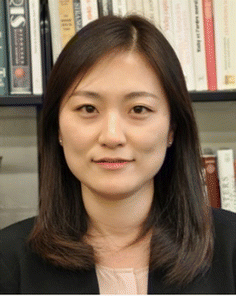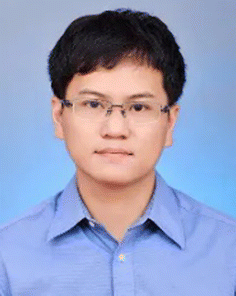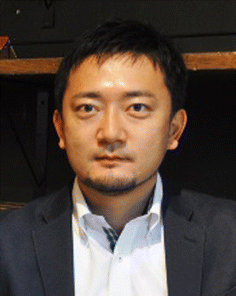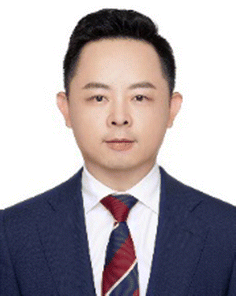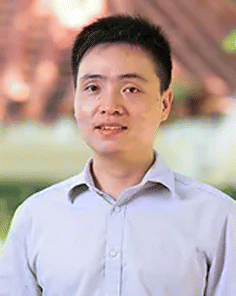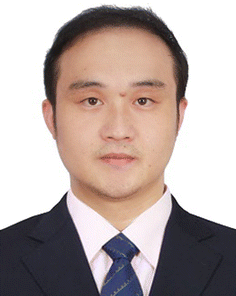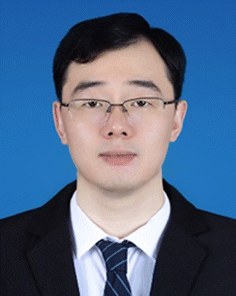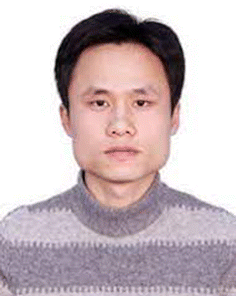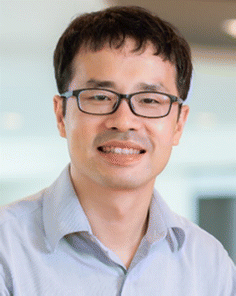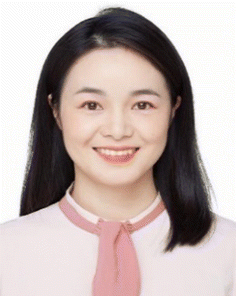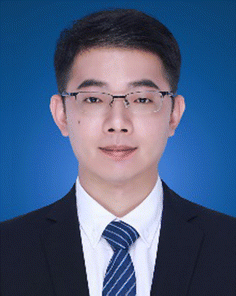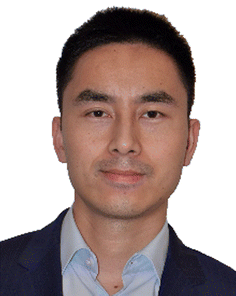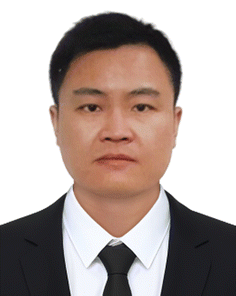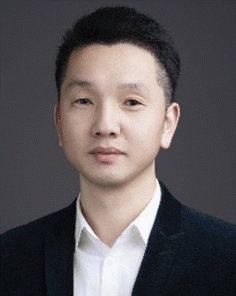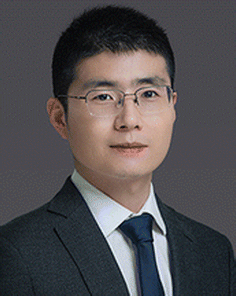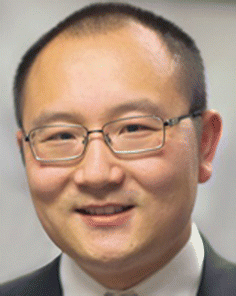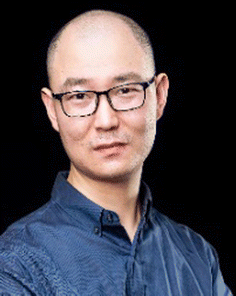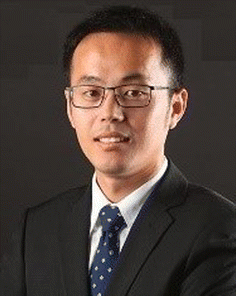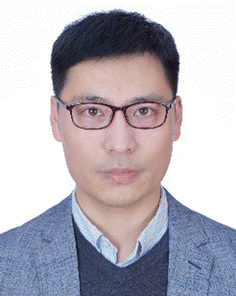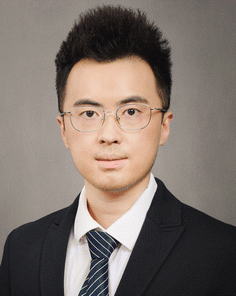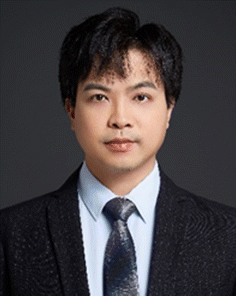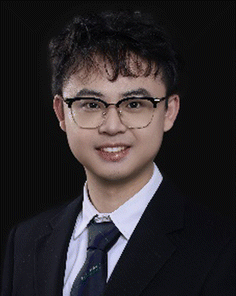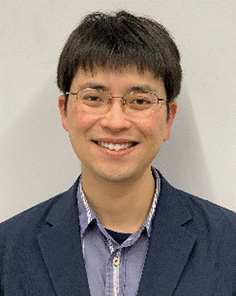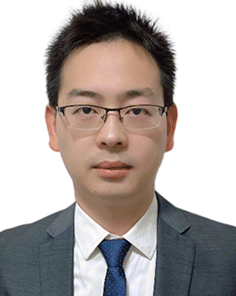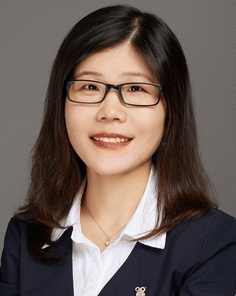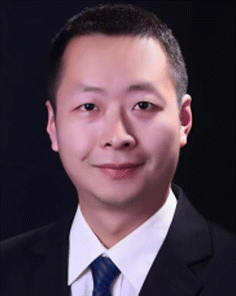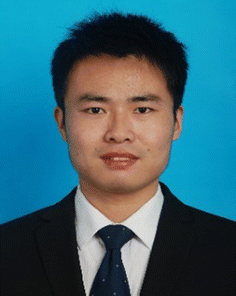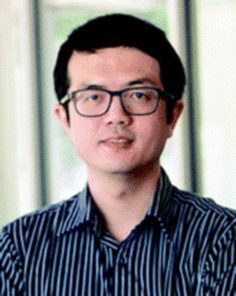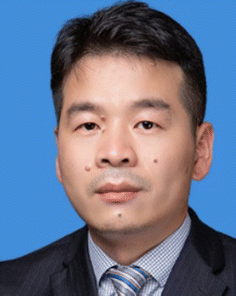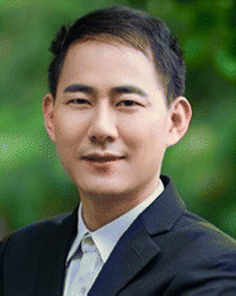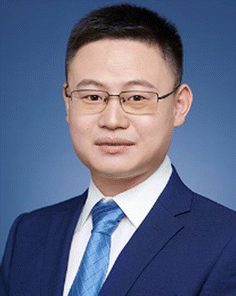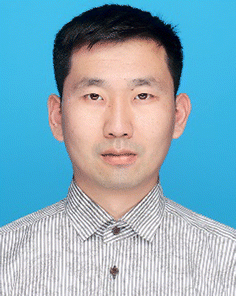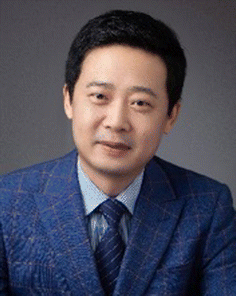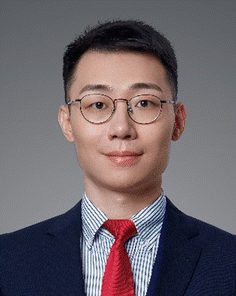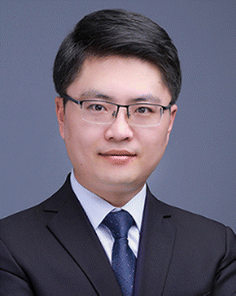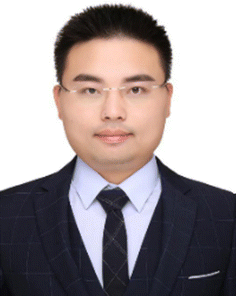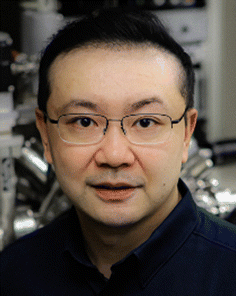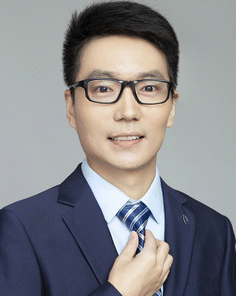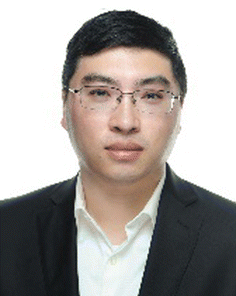Contributors to the Materials Chemistry Frontiers Emerging Investigator Series 2022–2023
Abstract
In the summer of 2022, Materials Chemistry Frontiers was pleased to launch an ongoing Emerging Investigators themed issue to highlight the best research being conducted by scientists in the early stages of their independent careers. Each contributor was recommended as carrying out work with the potential to influence future directions in materials chemistry. Congratulations to all the researchers featured; we hope you enjoy reading their work.
Jinhye Bae is an Assistant Professor in the Department of Nano Engineering at the University of California San Diego. She received her PhD in Polymer Science and Engineering at the University of Massachusetts Amherst in 2015, and then worked as a Postdoctoral Fellow in the School of Engineering and Applied Sciences at Harvard University. Her research focuses on understanding the physical and chemical properties of polymeric materials to program their shape reconfiguration and responsiveness. Her research interests also include the integration of material characteristics into new structural design and fabrication approaches for applications in biomedical devices, soft robotics, actuators, and sensors.
EMI Article: https://doi.org/10.1039/D3QM00856H
Zonglong Zhu is an Associate Professor in the Department of Chemistry, City University of Hong Kong. He obtained his BS degree (Chemistry) in 2010 from Nanjing University (China). In 2015, he earned his PhD degree from the Hong Kong University of Science and Technology (HKUST). Then he worked at the Department of Materials Science and Engineering at the University of Washington as a postdoctoral fellow. His research mainly focuses on the design of inorganic/organic materials, as well as connecting materials synthesis, physical properties, and device performance for optoelectronics applications. His current application interests include solar cells, transistors, light-emitting diodes, and electrochemical devices.
EMI Article: https://doi.org/10.1039/D3QM00236E
Yusuke Ishigaki received his BS degree in 2008, MS degree in 2009, and PhD degree in 2012 from Hokkaido University under the supervision of Professor Takanori Suzuki. After working as a JSPS postdoctoral fellow at Ulm University (with Professor Peter Bäuerle) and at Nippon Steel & Sumikin Chemical Co., Ltd, he moved to Hokkaido University as an Assistant Professor in 2016 and was appointed as an Associate Professor in 2021. His research interests are flexible and stimuli-responsive molecules with distorted C–C covalent bonds, such as long C–C single bonds and C
![[double bond, length as m-dash]](https://www.rsc.org/images/entities/char_e001.gif)
C double bonds with a nonplanar geometry, and their cationic species.
EMI Article: https://doi.org/10.1039/D2QM01199A
Bilu Liu is a Full Professor at Tsinghua University. He received a bachelor’s degree from the University of Science and Technology of China in 2006 and a PhD from the Institute of Metal Research, Chinese Academy of Sciences, in 2012. His research covers the chemistry and materials science of low-dimensional materials, including carbon nanostructures, 2D materials, and hetero-structures, and their use in electronics, opto-electronics, and electrocatalysis.
EMI Article: https://doi.org/10.1039/D2QM01108E
Lydia Kisley is an Assistant Professor of physics and chemistry at Case Western Reserve University (CWRU). Her research group, which was established in 2019, studies realistic, multicomponent material systems using single-molecule imaging, with the goal to inspire materials design. Her work in the corrosion of metal material surfaces currently focuses on developing optical imaging methods to detect fluorescence indicators of redox reactions at the single-molecule scale. Prior to joining CWRU, she was a Beckman-Brown Interdisciplinary Postdoctoral Fellow at the Beckman Institute, University of Illinois at Urbana-Champaign, working with Prof. Martin Gruebele, Prof. Deborah Leckband, and Prof. Paul Braun. She received her PhD in Chemistry at Rice University with Prof. Christy Landes and her Bachelor of Science degree from Wittenberg University.
EMI Article: https://doi.org/10.1039/D2QM01309F
Chaoliang Tan is an Assistant Professor in the Department of Electrical and Electronic Engineering (EEE) at The University of Hong Kong (HKU), HKSAR, China. He received his PhD degree under the supervision of Prof. Hua Zhang in Materials Science from Nanyang Technological University (Singapore) in 2016. After working as a Research Fellow in the same place for about one year, he then worked as a Postdoctoral Research Fellow with Prof. Ali Javey in the Department of Electrical Engineering and Computer Sciences at the University of California, Berkeley, for two years. He was an Assistant Professor at the City University of Hong Kong from 2020 to 2023 before joining HKU. His research focuses on 2D materials for electronics and optoelectronics, and structural engineering of layered materials for biomedicine,
etc.
EMI Article: https://doi.org/10.1039/D2QM01333A
Dong Wang received his PhD degree from the University of Bordeaux, and he conducted his postdoctoral studies at the University of Toronto and the Hong Kong University of Science and Technology. He is currently a distinguished professor at Shenzhen University. His research focuses on the design of AIEgens for chemical sensing and biological applications.
EMI Article: https://doi.org/10.1039/D2QM01382G
Yu Zhou received his BS degree (2006), MS degree (2009), and PhD (2012) from the School of Chemistry and Chemical Engineering of Nanjing University. He then worked at the College of Chemical Engineering, State Key Laboratory of Materials-Oriented Chemical Engineering, Nanjing Tech University. His present research interests focus on green catalysis and sustainable processes, such as CO
2 capture and photo-/electro-reduction, and biomass platform molecule conversion by designing new materials such as zeolite molecular sieves, covalent organic frameworks, ionic liquids, nanoporous polymers, and carbons.
EMI Article: https://doi.org/10.1039/D2QM01234K
Haining Chen is currently an Associate Professor at the School of Materials Science and Engineering, Beihang University. He obtained his PhD degree from Beihang University in 2013, following which he worked as a postdoctoral fellow at The Hong Kong University of Science and Technology. His research interests include perovskite solar cells and water splitting.
EMI Article: https://doi.org/10.1039/D2QM01124G
Xiaogang Liu is an Assistant Professor at the Singapore University of Technology and Design (SUTD). He obtained his PhD degree from the University of Cambridge in 2014 under the supervision of Professor Jacqueline Cole. He began his independent research with the Singapore–MIT Alliance for Research and Technology as a SMART Scholar (2014–2017). After joining the SUTD in 2017, he led the Fluorescence Research Group to conduct research on the structure–property relationships of organic dyes, as well as to develop high-performance fluorescent products for a wide range of applications.
EMI Article: https://doi.org/10.1039/D2QM01264B
Rong Hu received her PhD degree from the Institute of Chemistry, Chinese Academy of Sciences in 2016. She conducted her postdoctoral research with co-supervisors Anjun Qin and Ben Zhong Tang at South China University of Technology in 2016–2019. After that, she was a visiting scholar at Hong Kong University of Science and Technology (HKUST) from 2019–2020. Now, she works at the University of South China. Her current research focuses on the development of AIE-active luminescent materials, especially polymers, and their relevant applications in biomedicine.
EMI Article: https://doi.org/10.1039/D3QM00842H
Long Ye has been a Professor at the School of Materials Science & Engineering of Tianjin University since October 2019. He received his PhD degree from the Institute of Chemistry, Chinese Academy of Sciences, in 2015. From 2015 to 2019, he was a postdoctoral researcher and was later promoted to research assistant professor at the Department of Physics, North Carolina State University. His current interests include organic solar cells and energy-conversion-related applications.
EMI Article: https://doi.org/10.1039/D3QM00334E
Ming Liu received his PhD degree in chemistry in 2009 from Department of Chemistry, Zhejiang University, China. Then he worked as a postdoctoral fellow at the CNRS-East Paris Institute of Chemistry and Materials Science for one year, before joining Prof. Andy Cooper’s group at the University of Liverpool as a research associate in 2011, working on developing functional organic cages towards real-world applications. In October 2021, he moved to the Department of Chemistry, Zhejiang University, as an assistant professor. His current research is focused on the rational synthesis of molecular materials for pollution treatment and clean energy solutions by combining the tools of supramolecular chemistry, solids and computational design.
EMI Article: https://doi.org/10.1039/D3QM00217A
Guoqing Pan is currently a full professor at the Institute for Advanced Materials, School of Materials Science and Engineering, Jiangsu University. He obtained his PhD degree (2011) in polymer chemistry and physics from Nankai University, under the supervision of Prof. Huiqi Zhang. In 2014, he joined Prof. Kenneth J. Shea’s group at the University of California, Irvine. He was then supported by the EU “Horizon-2020” action (2016), as a Marie-Curie Individual Fellow in Prof. Börje Sellergren’s group at Malmö University for 2 years of postdoctoral research. His current research interests encompass biomaterial interfaces, molecular imprinting, tissue engineering, and synthetic bioactive polymers.
EMI Article: https://doi.org/10.1039/D3QM00643C
Jianyu Yuan is currently a full professor at the Institute of Functional Nano and Soft Materials, Soochow University. He received his PhD degree from Soochow University in 2016. In 2014–2015, he worked at the University of California, Santa Barbara as a joint PhD student, and in summer 2018, he was a visiting professor at the National Renewable Energy Laboratory. Now, his research interests include the design and synthesis of semiconducting polymers, quantum dots, and hybrid systems for photovoltaic and other emerging optoelectronic applications.
EMI Article: https://doi.org/10.1039/D3QM00015J
Fei Zhang is currently a full Professor in the School of Chemical Engineering and Technology at Tianjin University. He received his BEng (2011) and PhD degree (2017) under the supervision of Prof. Shirong Wang at Tianjin University. He was a visiting PhD student at the LPI of the Ecole Polytechnique Fédérale de Lausanne (EPFL) under the supervision of Prof. Michael Grätzel and Dr Shaik Mohammed Zakeeruddin. Then he worked as a Postdoctoral Researcher in the Chemistry and Nanoscience Center at the National Renewable Energy Laboratory under Dr Kai Zhu’s supervision. His interests concentrate on synthesizing low-dimensional perovskites, hole-transporting materials, and device engineering for perovskite optoelectrical devices.
EMI Article: https://doi.org/10.1039/D2QM01315K
Jianyuan Zhang received his undergraduate degree from Beijing Normal University. After completing his PhD program studying fullerenes and metallofullerenes at Virginia Tech, and two postdoctoral studies at the University of Washington and Massachusetts Institute of Technology, he started his independent research at Rutgers University – New Brunswick. He is a recipient of the NSF CAREER Award and NIH MIRA R35 Grant. The research of the Zhang group combines chemical synthesis and materials science, with an emphasis on the new chemistry of fullerenes and metallofullerenes, and their applications for biomedical materials and biomedicine.
EMI Article: https://doi.org/10.1039/D3QM00004D
Zheng Zhao is an Assistant Professor at the Chinese University of Hong Kong, Shenzhen. He received his PhD from the Shanghai Institute of Organic Chemistry, Chinese Academy of Sciences, in 2014. He conducted his postdoctoral research at the Hong Kong University of Science and Technology from 2015 to 2019. In 2020, he joined the School of Chemistry and Chemical Engineering at Southeast University. In 2021, he moved to The Chinese University of Hong Kong, Shenzhen, and worked as an assistant professor and a Presidential Young Scholar. His current research focuses on luminescent functional materials and their bioapplications.
EMI Article: https://doi.org/10.1039/D3QM00598D
Kai Li received his BS degree at the University of Science and Technology of China in 2008 and his PhD degree at the University of Hong Kong in 2013. He worked as a postdoctoral research fellow at the University of Hong Kong from 2013 to 2018. Then he joined Shenzhen University and is now a professor at the College of Materials Science and Engineering. His research interest is in luminescent molecular materials with particular focus on transition metal complexes.
EMI Article: https://doi.org/10.1039/D2QM01163H
Gengtao Fu received his PhD from the School of Chemistry and Materials Science at Nanjing Normal University in 2017. Then he worked as a research fellow at Nanyang Technological University (2017–2019), and the University of Texas at Austin (2019–2020). He currently works at the College of Chemistry and Materials Science at Nanjing Normal University. The research interests of his group are nanostructured electrocatalysts and their applications in energy storage and conversion.
EMI Article: https://doi.org/10.1039/D3QM00516J
Chaoming Xie is a Professor at the College of Medicine, Southwest Jiaotong University. He received his PhD degree in Materials Science from Southwest Jiaotong University in 2016 and then joined the Max Planck Institute for Polymer Research as a postdoctoral fellow (2016–2018). His current research interests are focused on polyphenol-based biomaterials for tissue regeneration.
EMI Article: https://doi.org/10.1039/D2QM01232D
Sen Xin received his PhD degree in Physical Chemistry from the Institute of Chemistry, Chinese Academy of Sciences (ICCAS) in 2013. He worked with Prof. John B. Goodenough as a postdoctoral fellow at the University of Texas at Austin from 2015 to 2019 and joined ICCAS as a full Professor in 2019. His research interests focus on materials and interfacial chemistry, and electrochemical isotope effects in high-energy rechargeable batteries, including Li–S batteries and solid-state batteries.
EMI Article: https://doi.org/10.1039/D3QM00049D
Zijie Qiu is currently working as a tenure-track Assistant Professor and Presidential Young Scholar at the Chinese University of Hong Kong, Shenzhen. He received his bachelor’s degree in chemistry from Fudan University in 2014 and PhD in chemistry at the Hong Kong University of Science and Technology in 2018 under the supervision of Prof. Ben Zhong Tang. After graduation, he joined the group of Prof. Klaus Müllen at the Max Planck Institute for Polymer Research (MPIP) for postdoctoral research as an Alexander von Humboldt Fellow and was later promoted to Group Leader in April 2020. His research interests include the synthesis and applications of organic luminescent molecules and polymers with a special focus on chirality.
EMI Article: https://doi.org/10.1039/D3QM00562C
Masayuki Gon earned his PhD in polymer chemistry from Kyoto University in 2016 under the supervision of Professor Yoshiki Chujo. He developed three-dimensionally arranged π-conjugated materials and studied their specific optical and physical properties based on structure and chirality. He worked as a visiting research fellow in the group of Professor Kenneth J. Wynne at Virginia Commonwealth University in USA in 2014. He has been an Assistant Professor in the Department of Polymer Chemistry, Graduate School of Engineering, Kyoto University in the group of Professor Yoshiki Chujo in 2016 and in the group of Professor Kazuo Tanaka since 2018. His present research theme is the development of functional π-conjugated materials focused on the unique nature of heteroatoms.
EMI Article: https://doi.org/10.1039/D2QM01295B
Jie Yang received his BSc and PhD degrees from Wuhan University in China in 2013 and 2018, respectively, under the supervision of Prof. Zhen Li. He joined Tianjin University (TJU) in 2018 and he is currently an Associate Professor. His research interests mainly focus on the design and synthesis of new organic luminescent materials.
EMI Article: https://doi.org/10.1039/D2QM01205G
Xiao-Yu Hu received her PhD in Pharmaceutical Chemistry from the Chengdu Institute of Biology (CAS) in 2011. After postdoctoral research with Prof. Leyong Wang at Nanjing University, she joined Nanjing University as an Associate Research Professor in 2013. From 2016 to 2018, she worked at the University of Duisburg-Essen as a senior AvH Fellow (The Humboldt Fellowship for Experienced Researcher) with Prof. Carsten Schmuck. Since 2018, she has been appointed as the Professor of Organic Chemistry at Nanjing University of Aeronautics and Astronautics. Her current research interests are focused on supramolecular self-assembly and functional supramolecular materials.
EMI Article: https://doi.org/10.1039/D2QM00629D
Wei Tian completed his PhD in polymer materials at Northwestern Polytechnical University in 2009 under the supervision of Professor Xiaodong Fan. He joined the Department of Industrial and Systems Engineering at The Hong Kong Polytechnic University as a Research Associate. He returned to Northwestern Polytechnical University in 2011 and became a full professor in 2014. His research interests encompass the construction and applications of supramolecular polymers based on controllable cation–π chemistry.
EMI Article: https://doi.org/10.1039/D2QM00646D
Dongfeng Dang is a Professor at the School of Chemistry in Xi’an Jiaotong University. He received his PhD degree in 2015 from Xiangtan University. From 2012 to 2013, he was a visiting PhD student at Chalmers University of Technology. In 2015, he joined Xi’an Jiaotong University, where he currently leads a research group focusing on functional materials for organic electronics and biomedical engineering.
EMI Article: https://doi.org/10.1039/D2QM01120D
Lei Fang is currently a Professor in the Department of Chemistry at Texas A&M University. He obtained his BS (2003) and MS (2006) degrees from Wuhan University, and his PhD degree from Northwestern University in 2010. Subsequently, he spent two and a half years at Stanford University as a postdoctoral scholar working with Professor Zhenan Bao. In 2013, he joined the faculty of Texas A&M University, where he currently leads a multidisciplinary research team focusing on functional organic materials.
EMI Article: https://doi.org/10.1039/D2QM00789D
Jun Liu is a Professor at the South China University of Technology (SCUT). He received his PhD in Chemical Engineering and Technology at the Dalian University of Technology in 2011. From 2012 to 2013, he worked as an Alfred Deakin Postdoctoral fellow at Deakin University, Australia. After that, he moved to the Max Planck Institute for Solid-State Research in Stuttgart, Germany, working as a postdoctoral fellow. His current research interests mainly include high-energy-density Li/Na-ion batteries, all-solid-state batteries, Li–S batteries and novel energy storage devices.
EMI Article: https://doi.org/10.1039/D2QM00908K
Peng Huang is a Distinguished Professor, the Chief of the Laboratory of Evolutionary Theranostics (LET), and the Director of the Department of Molecular Imaging, at the School of Biomedical Engineering, Shenzhen University Medical School, China. He received his PhD degree in Biomedical Engineering from Shanghai Jiao Tong University in 2012. He then joined the Laboratory of Molecular Imaging and Nanomedicine (LOMIN) at the National Institutes of Health (NIH) as a postdoctoral fellow. In 2015, he moved to Shenzhen University as a Distinguished Professor. His research focuses on molecular imaging, nanomedicine and theranostics.
EMI article: https://doi.org/10.1039/D2QM01207C
Haiyan Peng is a Professor of Polymer Chemistry and Physics in the School of Chemistry and Chemical Engineering at the Huazhong University of Science and Technology (HUST). He received his BSc and PhD degrees from HUST in 2008 and 2014, respectively, under the direction of Professor Xiaolin Xie and Professor Yen Wei. He worked with Professor Christopher N. Bowman at the University of Colorado Boulder from 2012 to 2014 as a visiting scholar. From 2015 to 2016, he conducted research as an Assistant Professor at the Guangzhou Institute of Advanced Technology, Chinese Academy of Sciences, and implemented his postdoctoral research at the City University of Hong Kong. He became an Associate Professor at HUST in 2016 and was promoted to a Full Professor position in November 2021. He received the National Natural Science Fund for Excellent Young Scientists in 2021. His research interests are on holographic polymer nanocomposites and polymer/supramolecular materials for advanced manufacturing.
EMI Article: https://doi.org/10.1039/D2QM00744D
Chengyuan Wang received his PhD from Nanyang Technological University in 2015. From 2015–2020, he worked as a postdoctoral fellow at RIKEN, Japan. Following working as an Alexander von Humboldt Researcher at Eberhard Karls Universität Tübingen, he joined Anhui University as a professor in Nov 2021. His research topics include organic semiconductors, organic optoelectronics and the photophysics of organic solids.
EMI Article: https://doi.org/10.1039/D2QM00937D
Jintao Zhang obtained his PhD from the Department of Chemical and Biomolecular Engineering at the National University of Singapore in 2012. He was a postdoctoral fellow at Nanyang Technological University (Singapore) and Case Western Reserve University (USA). In Fall 2015, he joined the School of Chemistry and Chemical Engineering, Shandong University, as a full professor. His research interests include the rational design and synthesis of advanced materials for electrocatalysis, and electrochemical energy storage and conversion (
e.g., Zn–air batteries, halogen-based batteries, fuel cells, and supercapacitors).
EMI Article: https://doi.org/10.1039/D2QM00858K
Guangxue Feng received his PhD degree from the Department of Chemical and Biomolecular Engineering at the National University of Singapore in 2016, followed by a postdoctoral study at the same university. After serving as the Chief Research Scientist in a start-up company LuminiCell Pte Ltd for two years, he joined the School of Materials Science and Engineering at the South China University of Technology as a Professor in 2019. His research focuses on the development of novel organic optoelectronic nanomaterials for biomedical and biological applications.
EMI Article: https://doi.org/10.1039/D2QM01043G
Kun Zhang is currently a full Professor at the University of Electronic Science and Technology of China. He received his PhD degree at the University of Chinese Academy of Sciences in 2014, and then he worked at Tongji University School of Medicine till 2023. His research focuses on molecular imaging and cancer therapy.
EMI Article: https://doi.org/10.1039/D2QM00960A
Zhanhua Wei is a full Professor at Huaqiao University, China. He received his BS degree in 2011 from the Department of Chemistry, Xiamen University, China, and his PhD degree in 2015 from the Department of Chemistry, Hong Kong University of Science and Technology. His current research focuses on the synthesis of perovskite materials, perovskite light-emitting diodes, perovskite solar cells, and other optoelectronic devices.
EMI Article: https://doi.org/10.1039/D2QM01098D
Nan Jiang received his PhD degree in Condensed Matter Physics from the Chinese Academy of Sciences where he worked with Prof. Hongjun Gao. He was also a joint PhD student in Prof. Klaus Kern’s Group at the Max Planck Institute for Solid State Research. Following postdoctoral studies at Northwestern University with Prof. Richard Van Duyne, in 2015 he joined the University of Illinois Chicago. His research focuses on developing imaging and spectroscopy technology to study physics and chemistry at the ångström scale.
EMI Article: https://doi.org/10.1039/D2QM01025A
Haoke Zhang is currently a tenure-track Assistant Professor at Zhejiang University. He received his PhD degree from The Hong Kong University of Science and Technology in 2018 under the supervision of Professor Ben Zhong Tang and continued to work as a postdoctoral fellow at the same place from 2018 to 2020. His research interests focus on the mechanistic study of clusteroluminescence (CL), which is nonconventional luminescence in the clustering state from non-conjugated structures, with the goal of systematically studying the aggregate photophysics based on through-space conjugation.
EMI Article: https://doi.org/10.1039/D2QM01032A
Jingjie Wu is an Associate Professor of chemical engineering at the University of Cincinnati. He received his PhD degree in chemical engineering from the University of South Carolina in 2014. After completing a PhD, he did postdoctoral research with Professor Pulickel M. Ajayan at Rice University in 2014–2017. His research interests focus on catalysts, electrodes, and reactor design for electrochemical synthesis and energy conversion.
EMI article: https://doi.org/10.1039/D3QM00114H
|
| This journal is © the Partner Organisations 2024 |
Click here to see how this site uses Cookies. View our privacy policy here. ![[double bond, length as m-dash]](https://www.rsc.org/images/entities/char_e001.gif) C double bonds with a nonplanar geometry, and their cationic species.
C double bonds with a nonplanar geometry, and their cationic species.

